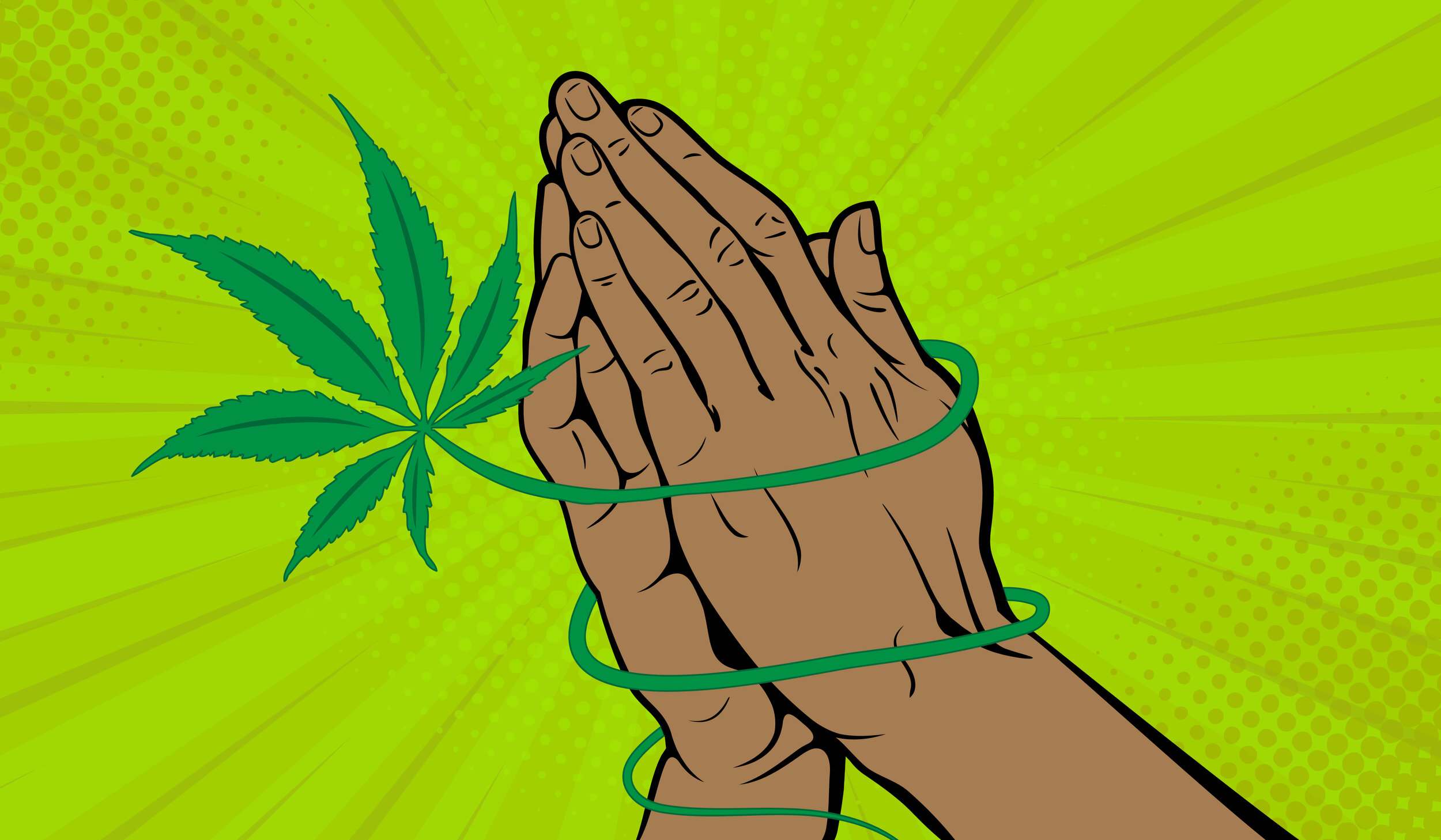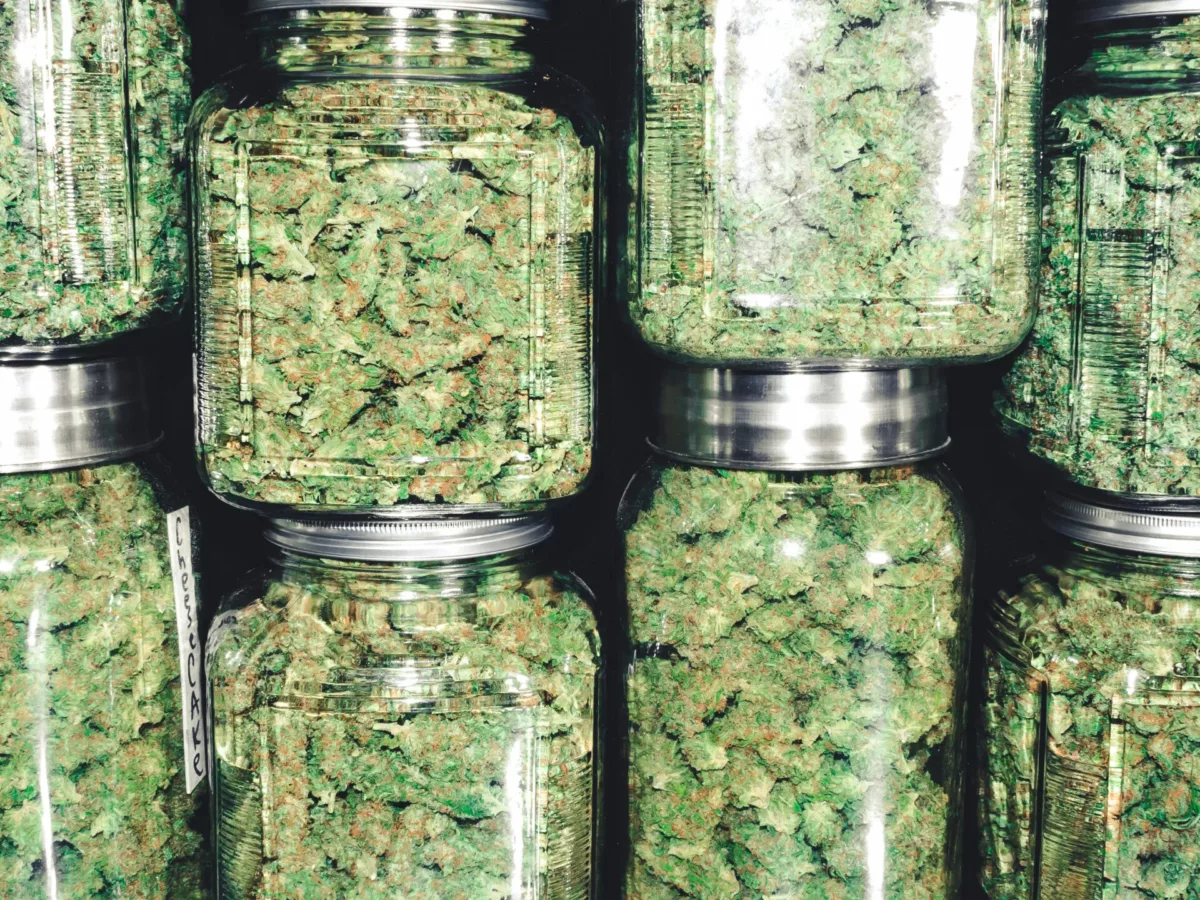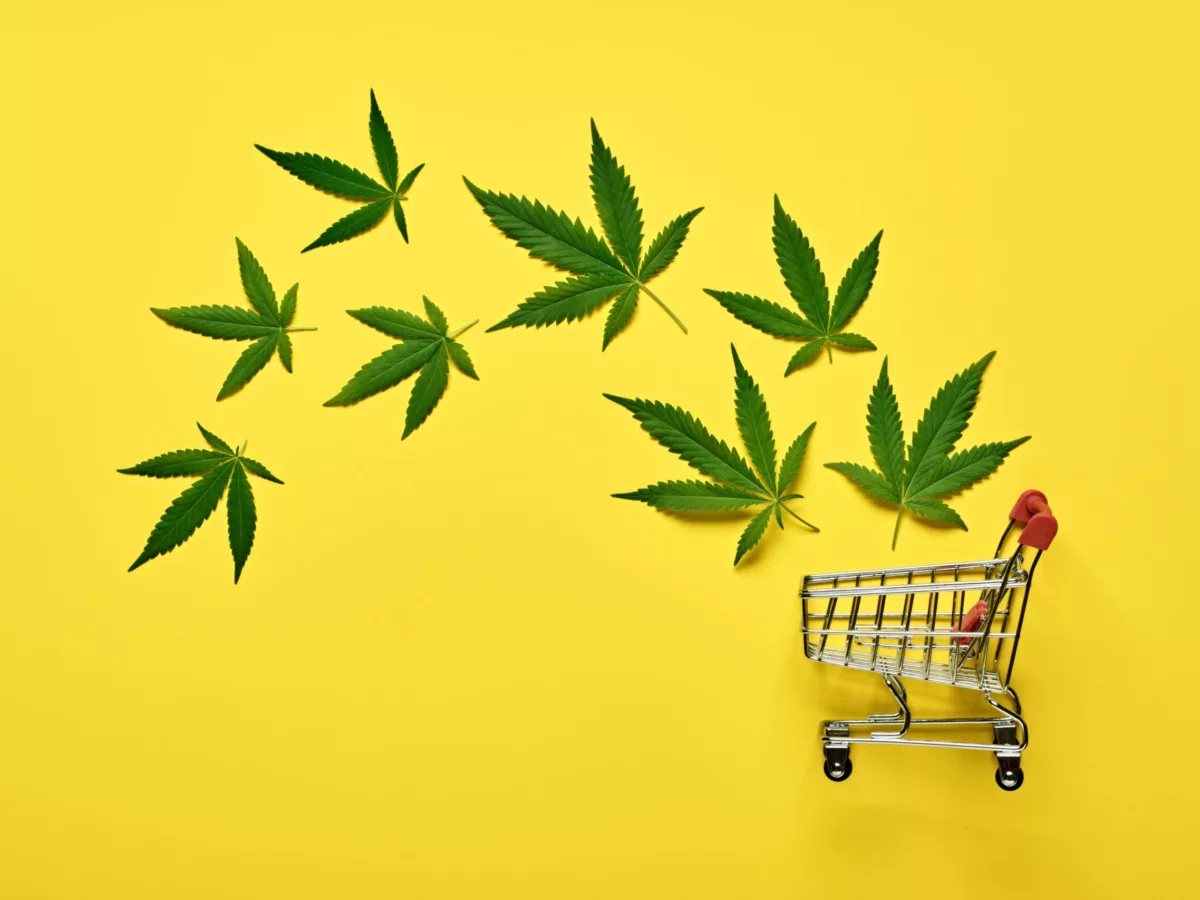Last week, the marquee sign in front of Pleasant Hope Baptist Church in Baltimore displayed a message in support of the Olympic sprinter who was barred from competition after testing positive for THC: “Sha’carri Richardson you are still that girl #Legalize.” the sign read.
In his blog, the church’s Reverend Dr. Heber Brown III said he wanted to use the marquee to send Richardson a message in his own small way, and posted a photo of the sign on the Pleasant Hope Facebook page. The post was shared more than 500 times and the church was featured on WJZ and Newsweek for making a declaration of support for Richardson and cannabis legalization.
After seeing the public’s reaction to his post, the pastor decided to hold a live virtual discussion on the church’s Youtube channel titled “High & Holy,” featuring State Senator Jill P. Carter (D-Baltimore City) and Keisha Reed, the founder of Explore Maryland Cannabis.
The conversation was aimed to educate church members on the importance of the history of cannabis prohibition and the pertinence of it’s legalization due to the ongoing racist enforcement of cannabis law by police and the courts.
In 2019, Black people accounted for 54% of cannabis-related arrests in Maryland despite making up only 30% of the population. In Baltimore in particular, the Baltimore Fishbowl reported (in a report coauthored by Outlaw Report’s Brandon Sodeberg) that FBI data showed 96% of arrests for cannabis possession in the city between 2015-2017 were of Black people.
At the beginning of the High & Holy event, Pastor Brown argued there is a clear justice element to cannabis legalization, and because he believes justice is a spiritual principle.
“[Cannabis legalization] intersects with what I believe is part of my calling, my commitment, as a person of faith and as a pastor in particular,” Brown said. “There should be some kind of reparations and restorative justice for those who have been penalized for this plant that is now making so many people—many white-men led companies—millions of dollars. While so many in our communities are behind bars.”
Baltimore’s Sen. Carter explained that for the political class, cannabis legalization is a good source of tax revenue. But for the Black community, “it’s our opportunity for reparations to repair the damage that has been done [for] the millions of people in communities that have been negatively impacted by the failed—or should I say fake—war on drugs.”
“It was never a real war on drugs, it was a war on us,” Carter added.
She explained that legalization will not be enough to repair the damage caused by cannabis prohibition to the Black community unless both state and federal legalization efforts include provisions to overturn the convictions of those currently imprisoned for cannabis.
“I come from a family where the failed war on drugs affected my uncle, my cousins, you know,” Keisha Reed, the founder of Explore Maryland Cannabis said. “Some of my closest friends were thrown away for a dime bag…This plant has been criminalized and used against our people for years,” Reed said.
In regards to state legislation moving forward, Sen. Carter said it’s crucial to prevent the monopolization of the cannabis industry by the minority of companies currently operating in Maryland.
In 2020, only 1 in 10 investors in Maryland cannabis companies were people of color. The medical industry has become increasingly dominated by multi-state operators with vertically-integrated operations, edging out smaller cannabis businesses.
Sen. Carter said as long as she’s in the state senate, she and many of her colleagues in the Black caucus will work to ensure the same thing doesn’t happen with the recreational market: “We will not have it and we will not allow it.”
Throughout the conversation, the church displayed comments and questions from viewers on the screen almost all in support of legalization. Some were senior church-goers who used cannabis medicinally, others said to have never tried it (including Rev. Brown) but saw the damage it’s prohibition has caused to the Black community.
One comment stated, “God gave us the plants and seeds of the earth to utilize…cannabis is definitely included.”






